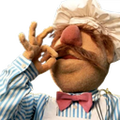Who Lives Well in Russia?
Practice shows that in Russia, those who live well are often the ones who know how to please those in power. There are various ways to do this, of course. For example, I watched and listened to how Mr. Mikhalkov criticized someone named Bykov, who, they say, is a writer. I haven’t read his work. Bykov claims that Putin’s changes to the constitution are just a power grab to stay president forever. As Putin himself said with some regret, this is his “destiny.” Well, you can’t argue with destiny, can you?
Mikhalkov’s Defense of Putin
Mr. Mikhalkov shouted at Bykov, accusing him of not understanding how much Putin cares about the people. After all, he included pension indexing in the constitution, which, according to Mikhalkov, is a sign of concern. He also included a mention of God and made sure that future presidents can’t give away Russian territory. Sure, some land was handed to China, but that was just a border adjustment. Besides, why give away the forest when the Chinese are already taking millions of cubic meters of timber without any permits? They already consider it their forest, much like the Finns do with Karelia.
What’s Missing from the Constitution
The updated constitution contains many new things, but it doesn’t mention anything about eliminating poverty or stopping the need for crowdfunding to treat sick children. There’s no mention of free and quality healthcare for all citizens. Mikhalkov highlights Putin’s concern for pension indexing, but pensions were indexed even without this being in the constitution, back in the Soviet Union and early Russia. It didn’t need to be written into the constitution at all.
Mikhalkov’s Loyalty to Putin
Mikhalkov defends Putin, of course. Under Putin, he has become one of the wealthiest people in the country, owning a massive estate like a true nobleman. Naturally, he supports Putin staying president forever. I sometimes wonder — both Putin and Mikhalkov grew up in the Soviet Union. They were raised as pioneers, Komsomol members, and even joined the Communist Party. Why did they turn their backs on the Soviet Union, the Communist Party, and everything tied to socialism?
A Generational Divide
I think this negative attitude toward socialism isn’t unique to their generation. We, the pre-war generation, were raised under different circumstances. We were taught that we lived in the best country in the world, but we had no idea how people lived elsewhere. We were brought up with patriotism and internationalism. During the war, I believed that the German working class wouldn’t fire on our soldiers. But they did, and quite fiercely, without a hint of international solidarity.
Post-War Disillusionment
The post-war generation, like Mikhalkov and Putin, experienced a different ideological environment than we did. They grew up after the 20th Congress of the Communist Party when Khrushchev denounced Stalin’s cult of personality, trying to save his own skin. This speech marked the beginning of the collapse of the Soviet Union. The young generation of Putin and Mikhalkov were exposed to the wave of literature, documentaries, and journalism that criticized the old regime. They were influenced by works like One Day in the Life of Ivan Denisovich and later authors like Grossman and Yevtushenko.
Putin’s Cultural Awareness
Watching Putin, I’m convinced of how significant childhood is in shaping a person. A child absorbs the dominant ideology of the time. Based on Putin’s jokes, his humorous remarks, and his comments about historical figures, I get the impression that he is not a particularly cultured individual. He seems to have a poor grasp of his country’s history and appears to be unfamiliar with classic literature, both Russian and international. His speeches are often simplistic and lack depth, though he tries to present himself as an intellectual leader. However, what isn’t there can’t be faked.

 if it were written by new york crimes
if it were written by new york crimes